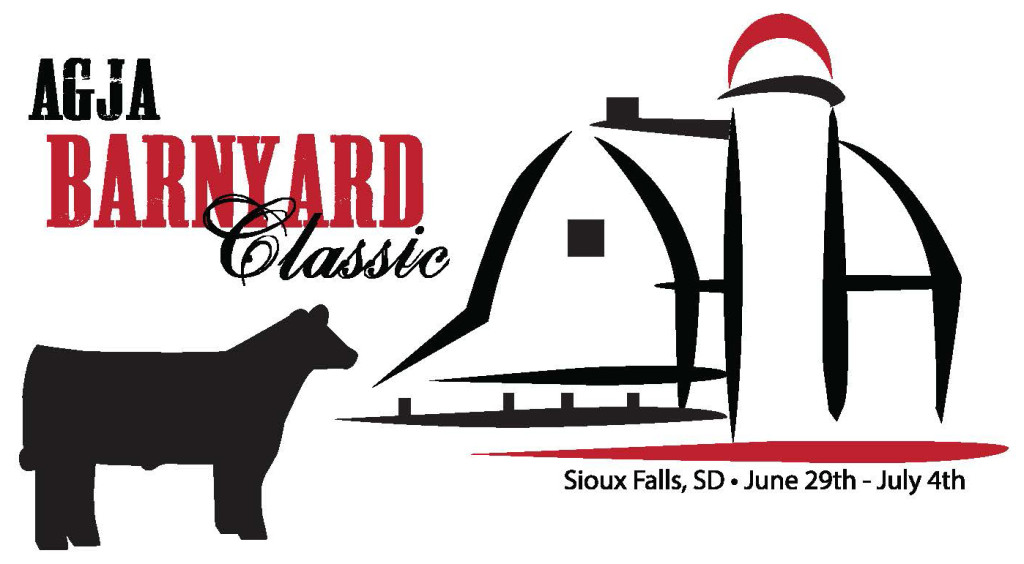All livestock entering South Dakota must have an official health certificate stating: 1. Name, address, and phone number of consignor; name and address of point of origination if different from consignor; name, physical address, and phone number of consignee; name and physical address of destination if different than consignee information.
2. Species of animal, age, sex, breed, number, purpose of movement, test results, etc.
3. Signature, address, and phone number of inspecting licensed accredited veterinarian.
4. Individual official identification listed as required.
5. Import shipping permit number for livestock. (As listed by species below.)
6. Must be free of signs of infectious or contagious diseases.
Permits may be obtained Monday through Friday, 8 a.m. to 5 p.m., at (605) 773-3321.
After hours permits are handled by an answering machine at (605) 773-3321. Leave the information requested and a permit number will be issued.
BEEF CATTLE & BISON (BUFFALO)
BEEF CALVES: (2 MONTHS AND UNDER)
- Certificate of Veterinary Inspection and permit number.
- Individual official ID (metal ear tag or RFID #s) listed on Certificate of Veterinary Inspection.
- Must be consigned and delivered directly to the consignee’s premises where they are under quarantine for 60 days. The calves may not be resold during the quarantine period.
BEEF FEEDER CATTLE & BISON (2-18 MONTHS OF AGE)
SUCKLING CALVES TRAVELING WITH THE COW TRAVEL ON DAM’S ID AND TEST INFORMATION
Certificate of Veterinary Inspection and permit number is required
Individual official ID listed on the CVI for all sexually intact animals originating from the Greater Yellowstone Area Designated Surveillance Areas of Idaho, Montana and Wyoming.
Cattle originating from a TB Modified-Accredited Advanced State or Zone
- Originate from a non-quarantined herd.
- Regardless of age, Official identification (metal ear tag #s or RFID tags), must be listed on the Certificate of Veterinary Inspection.
- Intact heifers 18 months of age and older must be negative to an official tuberculin test conducted within 60 days prior to movement unless they are destined for an approved feedlot.
Cattle originating from a TB Modified Accredited State or Zone
- Originate from a non-quarantined herd.
- Negative to an official tuberculin test conducted within 60 days prior to movement.
- Official identification (metal ear tag #s or RFID tags), regardless of age, must be listed on the Certificate of Veterinary Inspection.
- Intact feeder heifers must be moved only to an approved feedlot.
BEEF BREEDING CATTLE & BISON (over 2 months old) AND INTACT FEEDER CATTLE & BISON OVER 18 MONTHS OF AGE
Certificate of Veterinary Inspection and permit number is required
Individual official ID (metal ear tag #s, RFID) listed on Certificate of Veterinary Inspection
Cattle originating from Idaho must have a negative Brucellosis test within 30 days of import
Cattle originating from a TB Modified-Accredited Advanced State or Zone
- Originate from a non-quarantined herd.
- All intact cattle over 18 months of age must be negative to an official tuberculin test conducted within 60 days prior to movement unless they are destined for an approved feedlot.
Cattle originating from a TB Modified Accredited State or Zone
- Originate from a non-quarantined herd.
- All breeding cattle must originate from a herd that was negative to a whole herd official tuberculin test within 1 year prior to the date of movement. Date of herd test must be listed on the CVI.
- All animals to be moved tested negative to an official tuberculin test conducted within 60 days prior to movement.
- Intact feeder heifers must be moved to an approved feedlot.
TRICHOMONIASIS
BULLS
The following statement must be on the Certificate of Veterinary Inspection: “The bull(s) identified on this certificate have been tested and found to be negative for trichomoniasis by testing conducted by a laboratory accredited by the American Association of Veterinary Laboratory Diagnosticians.” The testing must be by methods approved by the board and may be by isolation of the organism or polymerase chain reaction (PCR).
Board approved Trich testing protocols for importation include:
- One negative PCR test conducted on a preputial scraping sample.
- Three consecutive negative culture attempts of preputial scraping samples collected with a minimum of seven days between each collection.
Negative TRICH test results are valid until the bull has returned to breeding activity. Exemptions: Provided such exemption qualifications are stated on the official certificate of veterinary inspection: (1) Virgin bulls; (2) Bulls imported to South Dakota for confined feeding or slaughter only; (3) Bulls imported for exhibition or rodeo purposes and held in confined facilities to prevent breeding as determined by the board; and (4) Bulls imported as part of seasonal grazing operations and not changing ownership as determined by the board, following a risk assessment. Call SDAIB for a Risk Assessment.
COWS No non-virgin and non-pregnant female cattle may be imported, loaned, leased, nor acquired for breeding purposes in South Dakota. However, non-virgin and non-pregnant female cattle registered with a breed registry, or to be used in confined dairy operations, may be exempt from the provisions of this section as determined by the board. Non-virgin and non-pregnant female cattle, each accompanied by its own offspring and prior to rebreeding are exempt from the provisions of this section.



